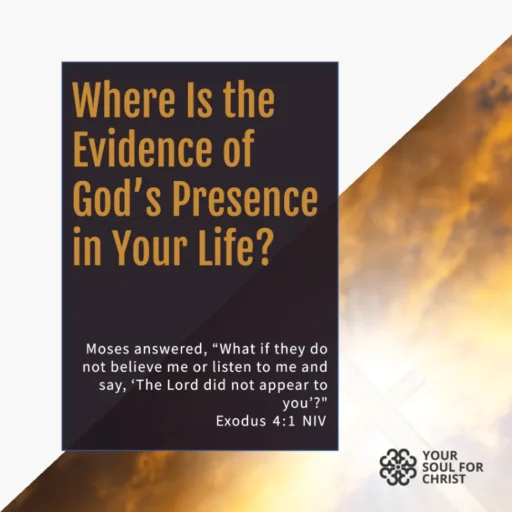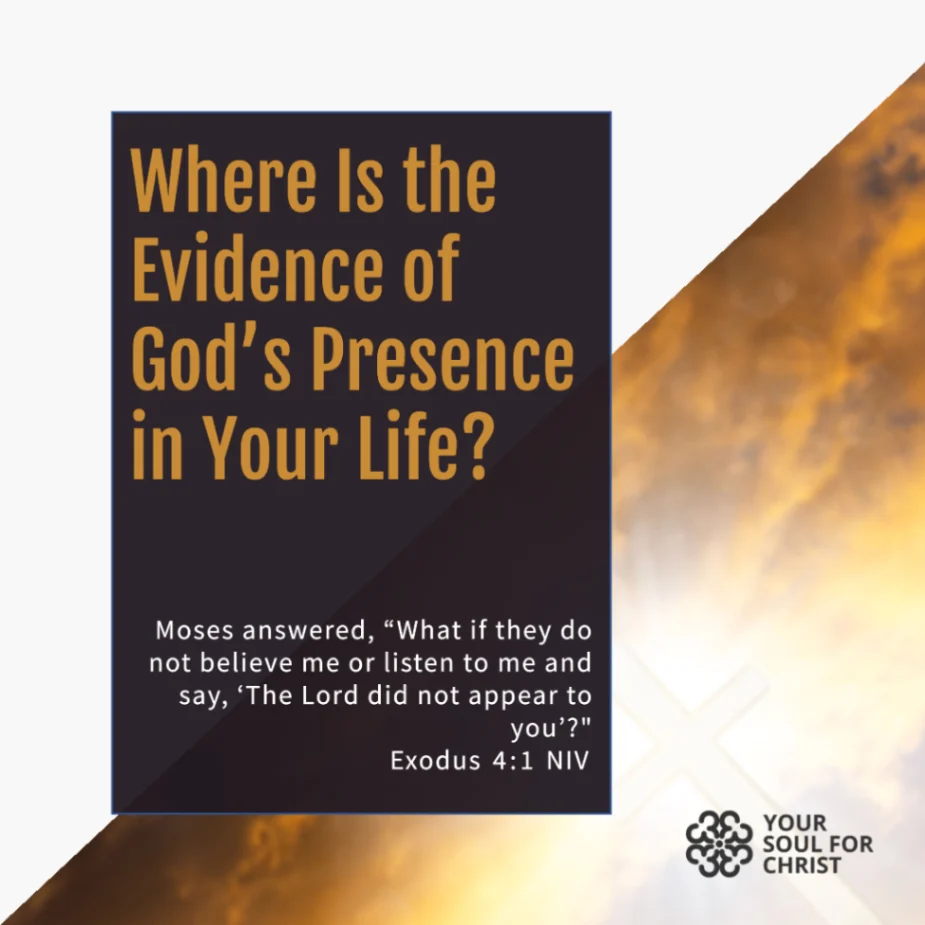Moses answered, “What if they do not believe me or listen to me and say, ‘The Lord did not appear to you’?”
Exodus 4:1 NIV
When Moses stood before the burning bush and heard God’s call, he did not respond with eagerness or confidence. In Exodus 4:1, he asked, “What if they do not believe me or listen to me and say, ‘The Lord did not appear to you’?”. At first glance, it seems Moses was simply trying to excuse himself from the daunting assignment of leading Israel. But his question carries a deeper cry—one that speaks to the human heart across generations: Where is the evidence of God’s presence in my life?
Moses wasn’t merely reluctant. He was wrestling with the need for divine assurance. He wasn’t willing to go without tangible evidence that God had truly sent him. His question was deliberate: “What if they challenge the reality of Your presence in my life?” He understood that claiming God sent him required more than words. He sought confirmation that would silence his doubts and validate his mission.
This moment invites reflection. What if those around you were to ask, “Where is the evidence of God’s presence in your life?” Could you point to anything beyond your own testimony? Is there something visible—something undeniable—that speaks of God’s nearness and calling upon your life?
In response to Moses, God provided miraculous signs. But beyond the wonders, there was a deeper revelation: God’s presence was not to be proven by signs alone. We must live it out. It must reflect in a life transformed by His calling and sustained by His Spirit.
This truth convicts me. It challenges me to examine whether my life testifies to God’s presence—or whether my words alone carry the weight of that claim. If my only evidence is verbal, then something essential is missing. A believer’s life must radiate the presence of God. It must carry a fragrance that others cannot ignore.
What value is there in claiming intimacy with God if your life bears no fruit of it? What good is it to profess faith when your character does not reflect Christ, and your daily choices contradict the truth you proclaim? Mere words are not enough. Your walk must match your talk.
As a follower of Christ, I cannot afford to live without the assurance and evidence of God’s presence. To do so would be to settle for a form of godliness that denies its power. God has called me to more than that. He has called me to live a life that makes His presence known.
This means you must seek to glorify God in all that you do. You must walk in a way that reflects His holiness, His compassion, and His truth. His presence should so mark your life that those who encounter you can say with certainty, “This one walks with God.”
Living It Out
Ask yourself today: Is there visible evidence of God’s presence in my life? Take time to reflect on Exodus 4:1 and allow the Holy Spirit to reveal areas where your walk might not align with your words. Pray for grace to live in such a way that your life becomes a testimony of God’s nearness, power, and love.
Let your life speak louder than your words—let it testify that you are indeed walking with God.

